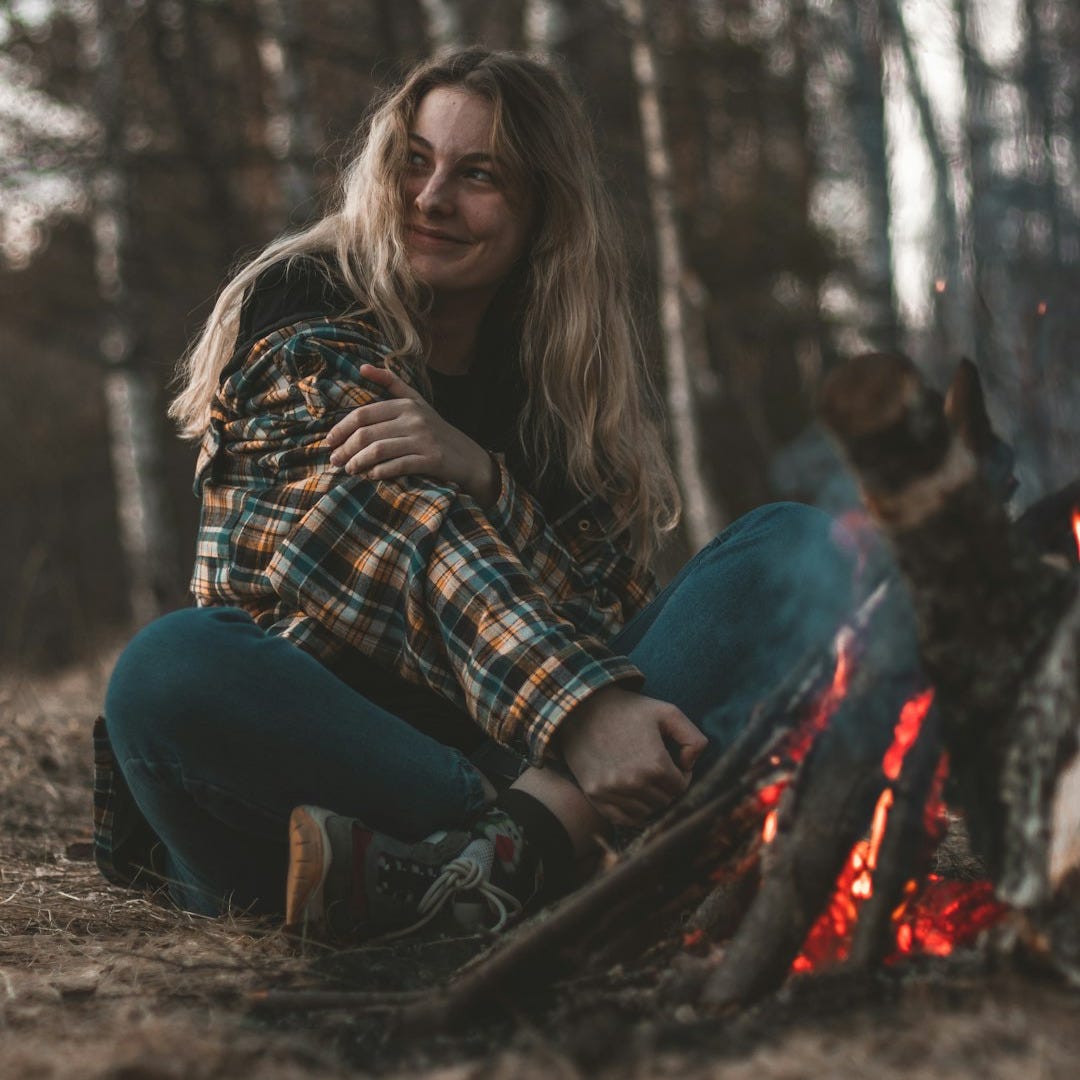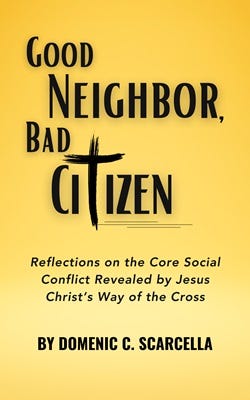If you enjoy this article, please click Like (❤️) to help others find my work.
The headline didn’t lie: This post is all about nature! More specifically, it’s about unpacking what we mean when we talk about “nature” and “natural” and “naturally” and assorted relatives.
The air, clouds, rocks, oceans, and streams are nature. The animals and plants are nature. Everything, it seems, is part of nature.
And yet, things that are part of nature — like, say, humans — can be referred to in ways that make their participation in nature, unnatural. If natural humans do too many human things in the natural world, then nature is spoiled.
Some foods are all-natural to distinguish from other foods that aren’t all-natural, even though all of the not-all-natural foods are made entirely from the natural world.
But, wait! There’s more …
Nature has a nature. Everything, it seems, has a nature, even unnatural and supernatural things!
Actors in dramatic productions — people who are intentionally pretending — are sometimes told to “act naturally,” which seems to mean they should pretend (“act”) to not pretend (“naturally”).
An entire movie is called The Natural. It’s about baseball, which is human-made and therefore one type of antonym for “natural.” But it’s best played on natural grass (I say all this as a baseball fan).
Two famous professional wrestlers, Buddy Rogers and Ric Flair, used the moniker “Nature Boy.” Professional wrestling has an unnatural quality to it — if it’s totally natural, it’s probably a botch — but, hey, that’s the nature of the business.
(If this is puzzling to read, imagine how awkward it is to write 🤣)
The roots
As you can see, “nature” is such a fundamental reality for humans, that its robust derivative usages can sometimes butt heads. People grapple so deeply with the concepts that the words assigned to those concepts can get in the way.
The words are important, though. They point us toward something resonant with who and what we are as humans.

Most pertinent to my core themes as a writer and podcaster, is how Christians and anarchists/voluntarists make great use of “nature” and “natural” when trying to communicate. Christians say that Jesus has a human nature and a divine nature, and that there is a glimpse of the supernatural in each human soul. Freedom advocates may speak of natural human rights.
And two of my favorite fellow Substack creators employ the terminology to identify their content: Adam Haman’s Haman Nature, and Heather Heying’s Natural Selections.
Clearly these words mean something vital to people. So, let’s get back to nature and discuss the basics.
“Nature” and “natural” trace back to the old Latin, “natura,” which refers to an essential course of action or a core aspect of a thing. It’s from the same “natus” root that I discussed two weeks ago regarding “nation” in my article, “When the ‘Nation’ No Longer Matters.”
Wikipedia has a good synopsis of the “nature/natural” development.
I describe the two main connotations of “nature” as such:
“Nature” (environment, world, universe, etc.): The continual process of integration and disintegration in the material realm.
The “nature” of a thing: Essential aspects that are present from the beginning.
“Nature,” as far as I can tell, is always in a state of becoming. And within this flux, there’s an identifiable quality to each instance of integration — such as an organism — that persists through the process: its “nature.”
That’s our natural existence for you: a seeming contradiction that’s really harmonious!
The rights
Perhaps nothing shows what the human mind can do with metaphor, analogy, abstraction, and language quite like our ruminations on nature.
It’s where the “nature of a thing” comes from, and subsequent theories like “natural law” that many famous figures in the Western tradition sought to explain.
While natural law/rights have been widely illuminated, it hasn’t always been in the exact same lighting (Encyclopedia Brittanica has a good overview for those curious to learn more). The modern treatment of the issue arguably reached its apex, in theory if not in practice, with the acknowledgment of “self-evident” truths that humans “are endowed by their Creator with certain unalienable Rights” (Declaration of Independence).

The problem could’ve been that many tried to make the case for natural law too complicated, rather than stopping after finding the essentials.
But what they had in common was a seeking of something specifically and universally intrinsic to individual humans, rather than imposed by social constructs and might-makes-right ethics. In this way, the search for natural law/rights is the beginning of anarchism!
I included my own distillation of the foundational elements in my very first Substack article:
Because underlying true anarchism is the substance of natural human rights: valid claims that any person can make, pre-politically, simply by virtue of being human.
What valid claims can people make, pre-politically?
A claim to one’s own person (life).
A claim to one’s intentional actions and consent-based, voluntary interactions with others (liberty).
A claim to cultivated and duly obtained material goods not already validly claimed by another person (property).
It’s not exactly how trees and insects and mountains operate, but it’s still nature; human nature. And my understanding of life, liberty, and property all respect physical, material reality; nature, again!
Where am I going with this? I’m not sure there’s a natural conclusion to such an inquiry. This may be very appropriate, since nature never concludes once-and-for-all (at least, it hasn’t happened yet).
The best I can do is remind everyone that good neighborliness taps into the best parts of human nature and human potential, while good citizenship feeds upon the worst parts and tries to regurgitate these pathologies as socially necessary and even noble.
Why do I keep emphasizing this maxim, week after week? Maybe it’s in my nature.
Are Comments on Substack natural?
If posted by actual humans, then yes!
Are you an actual human? Leave me your comments on anything natural, unnatural, supernatural, metanatural, or any combination …
—
My book, Good Neighbor, Bad Citizen, is available at:
· Amazon (paperback & Kindle)
· Barnes&Noble (paperback)
· Lulu (paperback)
Find me on X: GoodNeighBadCit
And, as always: Be a good neighbor, even if it makes you a bad citizen.





I found much to agree with, but felt an urge to say something negative even though nothing occurs to me. I guess it is just my nay-ture. Thanks!
My monkey brain had to reread the beginning a few times before catching on. This gave me a chuckle:
Some foods are all-natural to distinguish from other foods that aren’t all-natural, even though all of the not-all-natural foods are made entirely from the natural world.